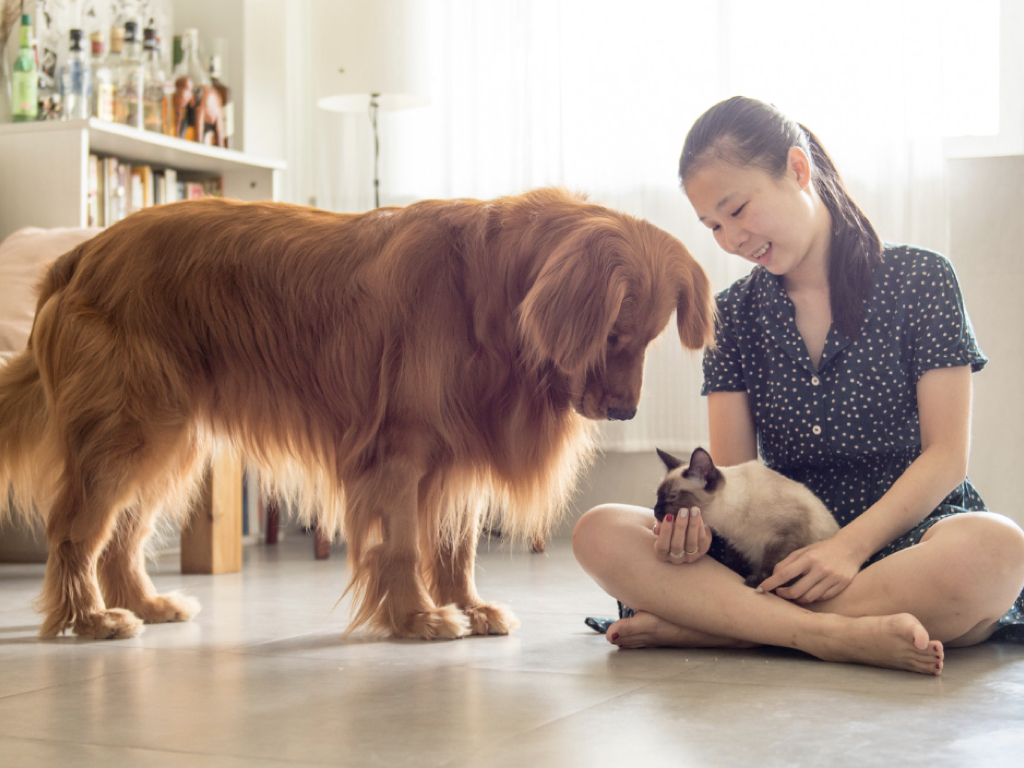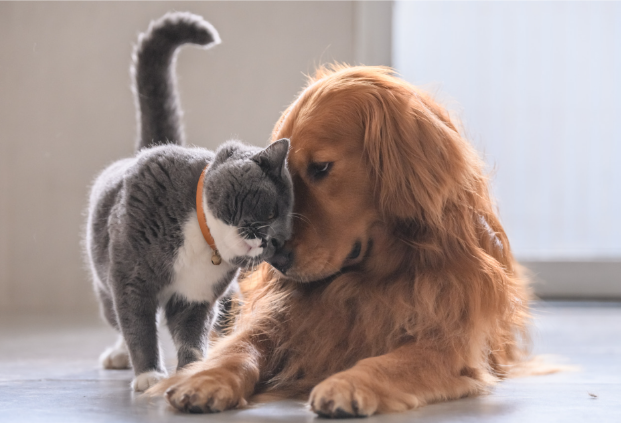There are a lot of misconceptions about FIV or the feline immunodeficiency virus. FIV is a viral infection that affects cats’ immune systems. While some cats infected with FIV may show signs of the disease, most do not. Still, pet owners worry needlessly. Can FIV be transmitted to dogs? To other cats? To humans? Read on to better understand how FIV can be transmitted.
FIV in a Gist
FIV is an infectious disease that primarily affects cats. The virus attacks the cat’s immune system and suppresses its ability to fight infection. As a result, infected cats are more likely to suffer from secondary infections (i.e., bacterial or viral infections) or develop tumours. However, an infected cat can generally live a long and happy life if treated with medications and occasionally monitored for signs of illness. In some cases, a cat’s health will deteriorate over time and require euthanasia.
FIV Transmission
Cats infected with FIV typically come into contact with the virus through close contact with another infected cat. Although this disease cannot spread directly from cat to cat, an infected cat can still transmit the virus to other cats by biting or scratching them. Infected females can also pass the virus to their kittens through breastfeeding. On the other hand, FIV will not spread through the environment, i.e., litter boxes and objects such as toys and feeding bowls.
FIV and Dogs
Can FIV be transmitted to dogs? The answer is No. There is no evidence to suggest that dogs can be infected with FIV. Dogs are generally not susceptible to FIV because they possess a different version of the immune system than cats do. Even if your dog is exposed to FIV, it will not affect your dog’s health. As such, no special precautions must be taken when FIV-infected cats live with dogs.
FIV and Humans
Similarly, humans are not at risk of contracting FIV. Humans have a completely different version of the immune system than cats and dogs and are thus not susceptible to this disease. Moreover, no evidence exists that FIV has ever been transmitted to humans. Therefore, you do not need to take any special precautions if you come in contact with an FIV-infected cat.
Preventing FIV Transmission
FIV can only spread among cats. However, FIV-positive cats may continue living with uninfected cats. Although you may have to take some precautions to ensure that the virus will not be transmitted. Here are some tips for preventing the transmission of FIV from an infected cat to an uninfected cat:
- Keep FIV-positive cats separate from uninfected cats.
- Do not allow your cats to roam freely around the house. This increases the chance they will contact each other and spread the virus.
- As much as possible, keep your FIV-positive cat confined to one room of the house so that it will not come into contact with other cats.
- Do not allow your FIV-positive cat to come into contact with other cats that are not your own. This includes grooming salons and veterinary clinics.
- Avoid introducing FIV-positive cats into a household that already has other cats.
Rehoming FIV-positive cats
Although FIV transmission among cats in the same household is low, it is crucial to consider rehoming your FIV-positive cat, especially if you can’t isolate her from other cats.
Below are some things to consider when rehoming an FIV-positive cat:
- Rehome your cat through a shelter or rescue organization if possible. The “No Kill” philosophy that most shelters and rescues follow means they won’t euthanize a cat even if they are ill or injured.
- Ensure the new potential home will be a safe environment for your FIV-positive cat. Ask about the number of other cats in the household, whether there is a resident dog and whether there will be any other pets in the future.
- Make sure the adoptive family knows your cat’s medical history and has experience with FIV-positive cats. This will help prevent them from transmitting the virus to other cats.
- Make clear to the new owners that FIV cannot be cured but that they can take steps to prevent their cats from infecting other cats through proper precautions.
Caring for FIV-positive cats with other pets

Cats diagnosed with FIV can live long and healthy lives if managed properly. Here are a few tips on caring for an FIV-positive cat when you have other pets.
- If you have other pets in the home, they should be vaccinated against viruses that can cause respiratory illnesses like distemper, which is fatal in cats.
- If another pet becomes ill, try to keep the FIV-positive cat away from this pet to limit the spread of the disease.
- Be sure to get annual vaccinations for your cat, including rabies, Bordetella, and feline leukemia virus vaccines.
- Limit access to areas where your other pets go to prevent your cat from becoming exposed to germs. Keep litter boxes separate, and do not share bowls or water dishes.
- Make sure that your FIV-positive cat receives regular veterinary care and is tested for diseases that can be caused by immunodeficiency.
Takeaway
FIV can only infect and spread among cats. However, virus transmission among cats in the same household is low, especially if you take proper precautions. If you cannot separate your cats due to the limitations of your house, then you may also consider rehoming your FIV-positive cat to ensure that the virus will not spread. Nonetheless, dogs, other pets, and family members may continue living with an FIV-positive cat without worrying about being infected with the virus.















